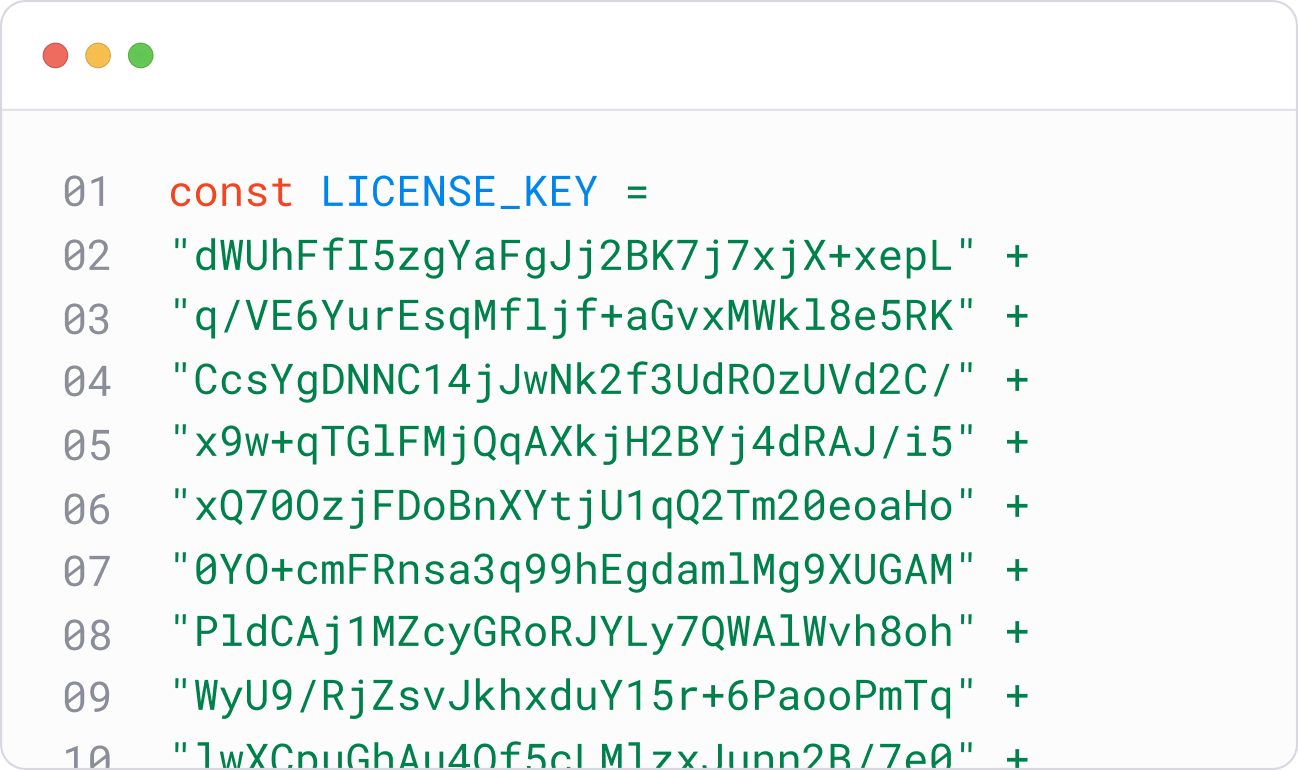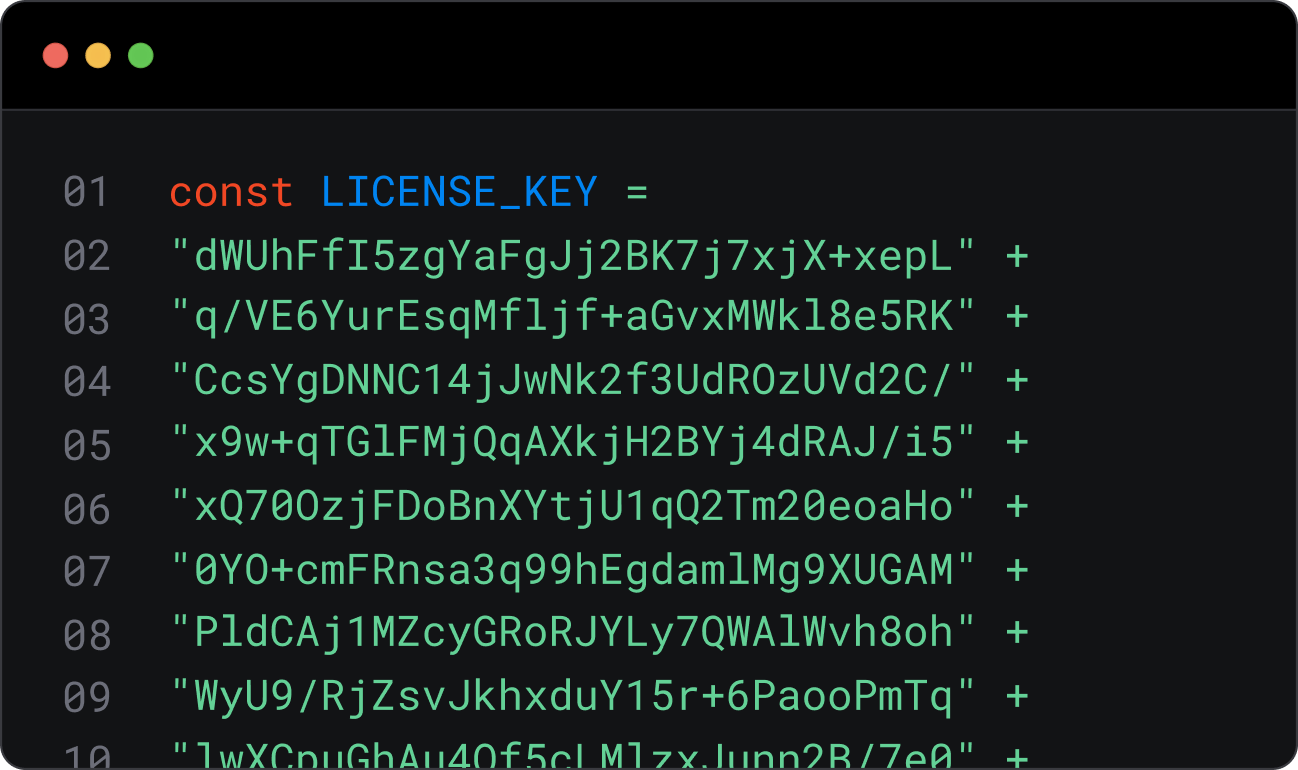You've got a few ways to store your Scanbot SDK license key, which lets you balance easy deployment against flexible updates. While embedding the key in your app is common, a server-based approach – like using Firebase Remote Config – offers more flexibility.
Storing the License Key Within the Application
The Scanbot SDK works completely offline, ensuring data privacy and functionality even without internet access. This design means the license key can be directly embedded into your app binary.
However, this approach means you can't update the SDK's license key automatically. Any renewal or change of the key will require you to update your app's binaries and publish a new version to platforms like Google Play or the App Store.
Server-Based License Management
When you need more dynamic license key management, we recommend a server-based approach. Host the license key on your server, and your app can request it periodically. This offers much greater flexibility: you can update the key on the server without any new mobile or web app releases.
Using Firebase Remote Config for License Management
If your project uses Firebase, storing the license key in Firebase Remote Config is an excellent server-based option. This lets you update the key centrally without needing a new app version release.
- To set up Firebase Remote Config for license key management, you'll first create a new Firebase project and initialize your environment.
- Configure a Remote Config property, defining a parameter for your license key.
- Register your app within the Firebase project.
- Implement the logic in your app to fetch and apply the license key from Remote Config to the SDK.
- Thoroughly test the setup to verify everything works correctly.
We offer dedicated blog posts with detailed instructions for implementing this setup across various platforms, including Android, iOS, React Native, Flutter, and Ionic Capacitor.
Minimizing License Update Frequency
To reduce how often you have to update your app's license key, we offer multi-year contracts. These longer-term agreements minimize license changes, simplifying the maintenance of your app.

